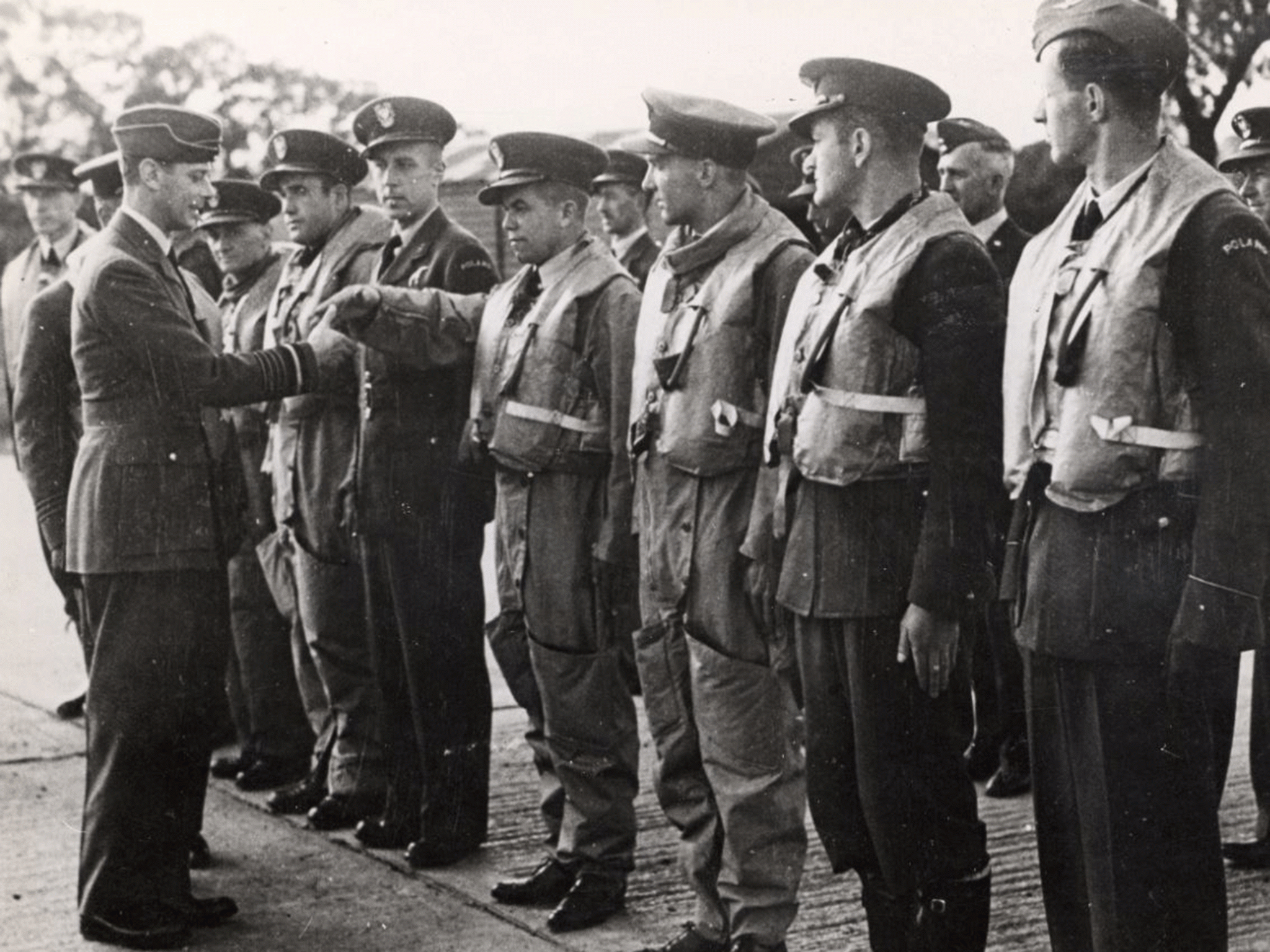Amid post-Brexit hatred, remember the Polish soldiers who fought alongside UK soldiers in the Second World War
'They fought with great pride and great belief in Britain', the son of a Polish soldier has said

Your support helps us to tell the story
From reproductive rights to climate change to Big Tech, The Independent is on the ground when the story is developing. Whether it's investigating the financials of Elon Musk's pro-Trump PAC or producing our latest documentary, 'The A Word', which shines a light on the American women fighting for reproductive rights, we know how important it is to parse out the facts from the messaging.
At such a critical moment in US history, we need reporters on the ground. Your donation allows us to keep sending journalists to speak to both sides of the story.
The Independent is trusted by Americans across the entire political spectrum. And unlike many other quality news outlets, we choose not to lock Americans out of our reporting and analysis with paywalls. We believe quality journalism should be available to everyone, paid for by those who can afford it.
Your support makes all the difference.The children of Polish soldiers who fought in the Second World War have spoken of their people's proud history of fighting alongside the British amidst rising xenophobia following Brexit.
Many Britons are "unaware" their own grandparents fought side-by-side with Poles against the Nazis and even as key spies and codebreakers who helped crack the Enigma code, experts have said.
Polish airmen were particularly pivotal in the Battle of Britain, and many later settled in the country and went on to work in the mines and other industries.
But while Poles have long been seen as "easy pickings" for racists in Britain, some say the recent incidents following the anti-EU Leave campaign have been the "worst" they have known.
However, they stressed that relations between British and Polish soldiers had historically been very cordial.
Michael Olizer, whose father was a Polish soldier, said many of the older generation remember the Poles being welcomed into Britain at the start of the Second World War after the Nazis had invaded their homeland.
"The Polish fought with great pride and great belief in Britain. There was a brotherhood in arms for those who had fought alongside the British," he told The Independent.
"One of the great things about the British is they don't go on too much about their history. But it also means they don't know much about the Poles, for example, and that's a sad thing.
"I hear people say 'What side were the Poles on in the War?' They were loyal allies to the British. They suffered terrible losses."
Britain was bound to defend Poland from attack by Germany in a mutual pact of loyalty between the two nations signed in August 1939. After their troops could not hold off the German invasion, much of the Polish military came to Britain to re-group.
One squadron at the Battle of Britain, made up of 143 Polish airmen, took down more German planes than any other in June 1940, meaning they made "a good impression" on the forces and the public at the time.
Meanwhile a female Polish spy, Krystyna Skarbek, better known as Christine Granville, was a daredevil double-agent for the British secret service throughout the war, who, despite being one of its longest serving women agents, was not granted British citizenship once the war ended.
The first codebreakers to lay the foundations for cracking the Engima code also were not British, but Polish mathematicians in Warsaw.
And the first design for a mine detector was created by Polish inventor Josef Kosacki, who presented it as a gift to the British Army. His creation was used across Italy and Sicily by British soldiers.
Yet Polish soldiers were not invited to the Victory Parade at the end of the war for fear of upsetting Joseph Stalin, who had been given Poland under the Yalta agreement signed by the US and UK. And many left-wing unions in Britain continued to be suspicious of Poles as they fled communism, believing them to be "fascists".
"There has always been a low level of dislike, which was really very unfair," said Mr Olizer, who is also a trustee of the Polish Institute and Sikorski Museum in London.
"On the whole, the Poles have always been very admiring of the British."
Since Brexit, racist and abusive incidents againts central and eastern Europeans have been reported to police across the country.
Joanna Mludzinska, chair of the Polish Social and Cultural Association, said graffiti daubed across her building's windows telling Poles to "f*** off" had shocked the community.
"I think these are some of the worst incidents we've ever seen. Of course things are much easier to see on social media now," she told The Independent.
"But many of the older generation are aware of the Battle of Britain and the Polish airmen. Maybe younger people aren't so aware.
"Since the graffiti, we have had some very warm and appreciative messages of support about the wartime history and the fact Polish people have been here ever since the War."
Important to the Polish community to this day is the Polish War Memorial in west London, which was erected in 1948 by airmen who settled in Britain after their country was taken over by the Soviet Union.
The vote to leave membership of the EU - partly driven by the slogan "we want our country back" - was mostly supported by the older generation in the UK.
Join our commenting forum
Join thought-provoking conversations, follow other Independent readers and see their replies
Comments